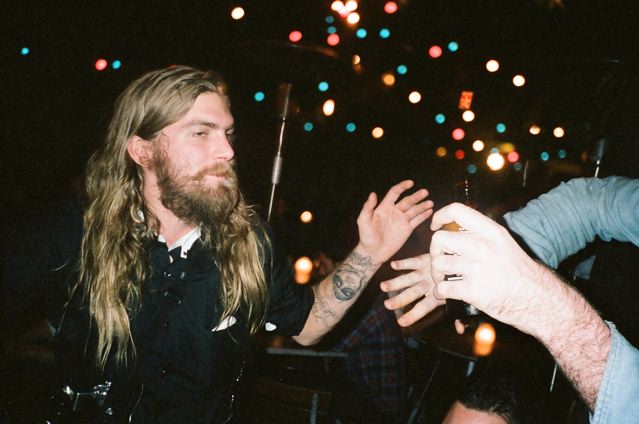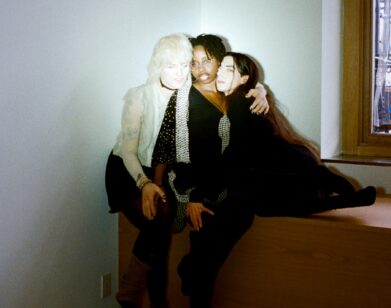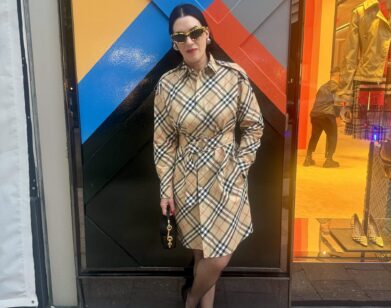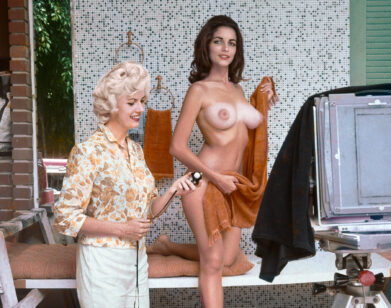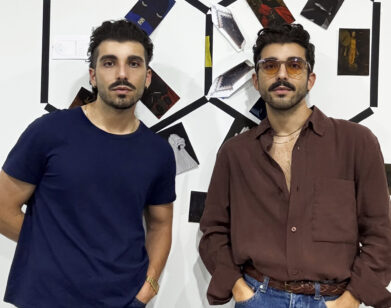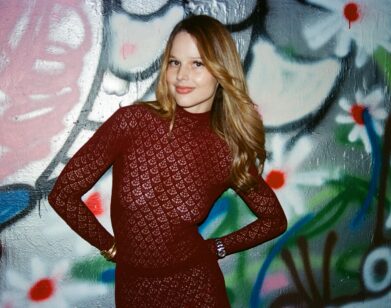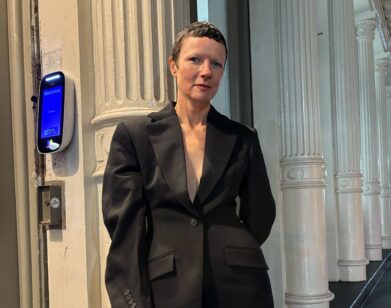Dash Snow, A Memorial
Dash Snow and Barrt McGee at The Street Market Show, 2000.
Photo by Cheryl Dunn
What is a memorial but a meager attempt to remember a life? I remember life through images. Sometimes if I have an image it relieves me that I have captured something, time, a person. Sometimes it doesn’t really matter. After hearing Dash had died, in utter grief and hoping to console, I told his brother Max that I had a lot of film and photos of him and he replied, “That’s nice but I just want him back.” I felt stupid as if that would change anything. but we all try whatever we can to change the circumstances of a tragic death of a loved one particularly a young and magical one. Dash was truly a shining light, an electric force that drew people to him from the first moment you met him.
Dash embodied New York. He was fearless, and he participated to the fullest extent in all of the extremes of this town. It’s a town designed to break people—that’s what makes it worth living in. He was perfectly suited for a town like this: He was a child, always eager to show you his Polaroids or talk about a great photo book that he had discovered. He was always the first one to introduce himself in a crowd of strangers. He defied all authority and risked everything to be true to his spirit, whether it was writing “Fuck Giuliani” in massive letters on the middle of the Brooklyn Bridge, to his departure from this earth. But Dash was like a tiger cub, lovable yet wild in every sense. One night at The Hole, a dingy bar on 2nd Avenue where we used to hang out, he came running back into the bar all bloody and smiling and said, “Take my picture. I just got punched in the face.”
I met Dash in 2000, while documenting The Street Market Show at Deitch Projects. He came in to hang out and help Barry McGee, Stephen Powers, and Todd James paint. Immediately, he was like a little brother. He was so amped about everything. He took no time showing me a huge stack of Polaroids of his debaucheries. A year later I curated him in his first show there.
We made a film together for that show. We shot an interview in C Squat [a squat near Avenue C]. He stood on some wood boards in a floorless room while I shot up at him in a damp, rat-filled basement . We shot in his apartment on Avenue C, where every inch of the walls was tagged and covered with post headlines, photos, anything and everything. He took me to a sweatshop building in Chinatown that had a broken front door and was tagged to shit. He tagged almost every step on the way to the roof and did a large throw up (in graffiti terms a large, quickly executed, tag). As he stood on the ledge smoking I took a picture of him, only to discover later that there was a shooting star in the sky right behind his head.
Dash was effervescent. He didn’t have a phone, or use e-mail. You couldn’t really find Dash unless you went out in front of his Bowery studio and howled, or happened upon him. Later, you could spot him walking his baby, Secret, around the neighborhood. The last I saw him was at my house on the Fourth of July. He was brimming with questions of movie cameras and film stock. He held his daughter, then went off into the night.
The morning I heard the news I couldn’t work, and I couldn’t be alone. I rode my bike to Lafayette and Kenmare. For those who remember, what’s now the relatively fancy Mexican restaurant La Esquina used to be this nasty burger joint. I hung there with him some times. I was compelled to go there thinking everyone I saw would be weeping on the street. I stayed out all night meeting up with mutual friends, holding each other, just being together. As I rode home at 7 AM, the light was beautiful and the air was peaceful. Dash knew this was the best time of day and I know his spirit was lurking out there after a long New York night.
Graffiti legend is like folklore. There’s no evidence, but it’s omni-present. It’s about getting over and not getting caught, leaving traces but being invisible. These are my memories, for whatever it is worth. Whether filled with facts or perceptions or just plain feelings, they are stories and stores make up a life. He had enough stories for three lifetimes.
Cheryl Dunn is a New York-based photographer. Deitch Projects is currently showing a tribute to Dash Snow, at its 76 Grand Street gallery location.

